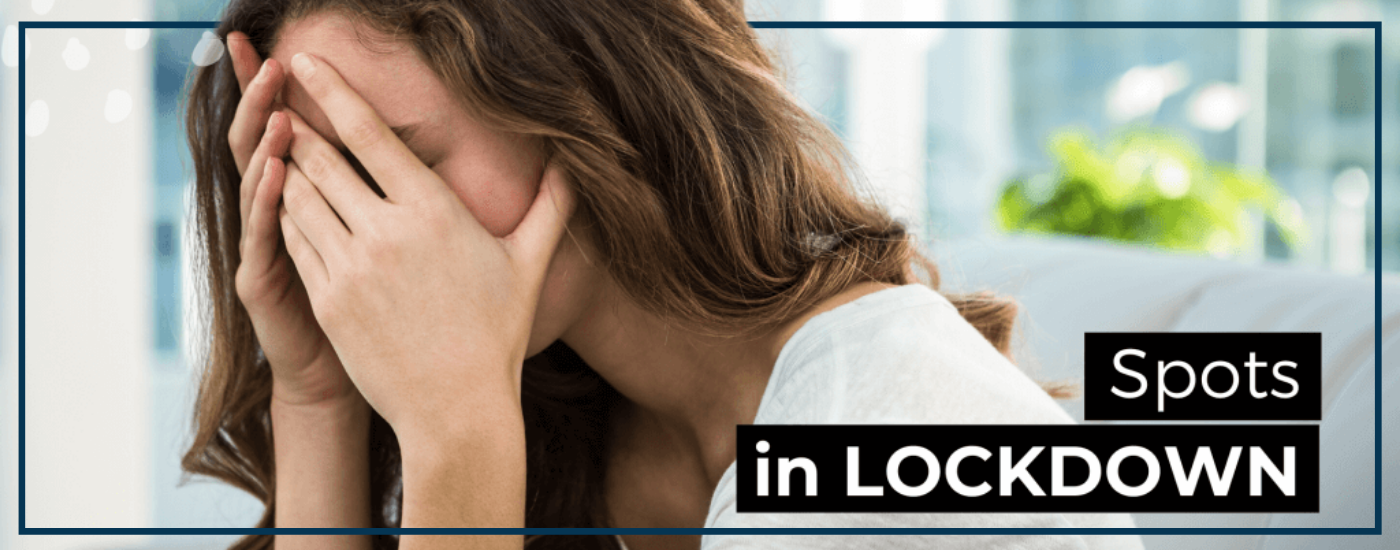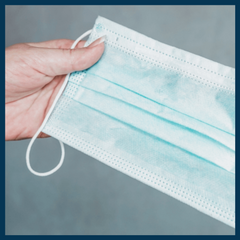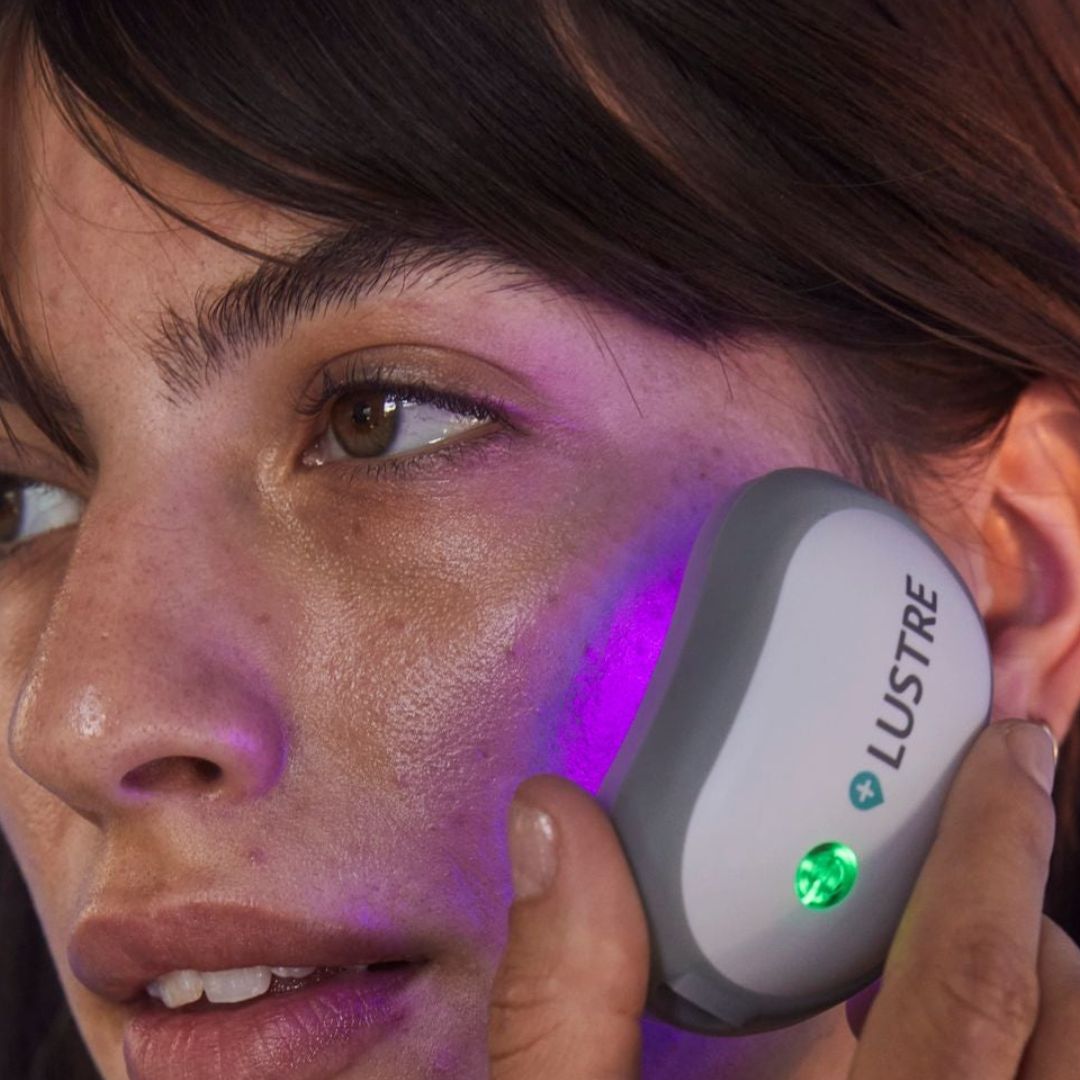Spots in Lockdown

For most people, when faced with the reality of lockdown and how their lives were going to change, the last thing they had anticipated was more skin problems.
For people who were already battling to control their spots, perhaps having specialist treatment that was now going to be interrupted, it may not have been a total surprise to see their acne flare-up – but even for people who would not usually worry about their skin it seems that they too are now troubled with breakouts.

Guest blog contributed by Dr Sam Robson, medical director at Temple Clinic, a specialist skin care and acne clinic in Aberdeen.
The starting point for addressing this is to understand why this may have happened and then to look at what can be done.
We should bear in mind that there are many reasons that acne occurs in the first place and also many factors that can result in a flare-up. Although we should not forget that there are contributory factors like genetics and age-related hormone changes which are less easy to counter, many of the lifestyle influences can be modified in order to improve the condition of your skin.

1. STRESS:
Few people have not felt stressed by Covid-19 and its consequences. The negative effect on people’s mental health, whether due to financial worries, loss of freedom or concerns about risks to your physical health, all contribute to the stress levels. Increased stress raises our cortisol levels and this then affects our skin – unfortunately getting more spots can also exacerbate the feelings of stress. It may sound simplistic to suggest focusing on minimising your stress but doing more exercise, meditating and finding effective ways to unwind and relax will also have an impact on your skin.
2. DIET:
From the shortages of flour and sugar at the supermarkets it is apparent that we have become a “nation of bakers “during lockdown. The attraction of high glycaemic index foods (cakes, biscuits, chocolate and junk food) are well known as comfort foods but the knock-on effect of the resulting spiking blood sugar levels on your skin can be disastrous. If you can move towards a Mediterranean style diet with plenty of fresh fruit and vegetables, healthy fats and good sources of protein such as fish along with more complex carbohydrates (brown bread, brown rice and pulses) you can avoid causing rapid rises in blood sugar and insulin levels that will provoke an outbreak of spots. The added benefits of the nutrients and vitamins provided by the fresh fruit, vegetables and salads will all boost your skin. Recent studies have also highlighted milk as a culprit in aggravating acne.
3. NO ACCESS TO CLINIC TREATMENTS:
With limited access to anything other than emergency medical care and little access to specialist help, the previous option of being able to attend a clinic such as Temple Clinic in Aberdeen means that clinic-based treatments using light therapy and peels are out. This doesn’t mean that you are on your own. Temple Clinic offers remote consultations, samples and tailored advice on how to manage your skin. One of their top lockdown recommendations has been to incorporate the home-based light therapy, LUSTRE, into your skincare regime. This effectively kills the bacteria associated with acne.

4. USING THE RIGHT SKINCARE PRODUCTS:
Keeping skin clean without being overly aggressive in stripping away the oils is key to managing your skin. Gentle cleansing and chemical exfoliation using carefully selected products are essential to unblocking pores and preventing spots in the first place. A good moisturiser that helps to repair the skin barrier and regular use of non-comedogenic SPF should also feature in your daily routine. Temple Clinic will provide samples of these to ensure these are suitable for your skin.

5. FACE MASKS:
although not yet compulsory, there is possibly going to be more pressure put on people to wear these when out and about. The increased condensation and damp environment under the mask will encourage increased oil production and the proliferation of skin bacteria.
Most masks are made from cloth and a breathable fabric like cotton or silk will certainly not stress the skin as much as the medical grade masks that frontline hospital staff require. If you do need to wear a medical grade mask then the focus must be on your skincare.
We advise to avoid wearing make-up under the mask since this will further clog the pores. Frequent washing or changing of the mask will help but do ensure a dry mask is used every time. If altering your diet, lifestyle and skincare routine does not help, then do not hesitate to get in touch with the experts at Temple Clinic. Being an ARAUK (Acne and Rosacea Association UK) accredited clinic, Temple are well placed to provide you with a remote consultation, samples and support to help manage your skin through lockdown and beyond.
For more on lockdown skin, read: Maskne: The Face Behind the Mask





